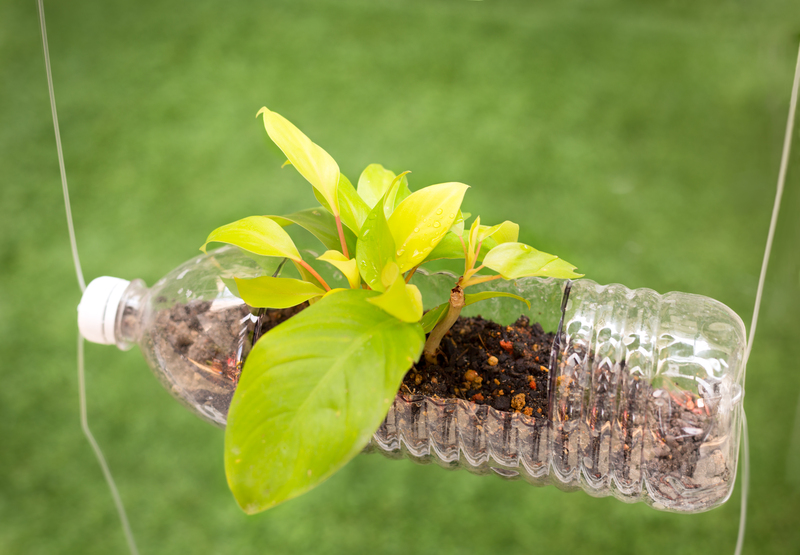Managing Uncompostable Waste in the Garden
Posted on 12/03/2025
Gardening can be a fulfilling and therapeutic hobby for many people. It allows us to connect with nature, grow our own food, and create a beautiful outdoor space. However, it also comes with its fair share of challenges, one of which is managing uncompostable waste in the garden.
Uncompostable waste refers to any type of material that cannot be broken down or decomposed by traditional composting methods. This can include items such as plastic, metal, glass, and treated wood. The presence of uncompostable waste in the garden not only takes up space but also poses a threat to plants and wildlife.
So how does one effectively manage uncompostable waste in the garden? In this article, we will explore some tips, pros and cons, and key takeaways on this topic.
Tips for Managing Uncompostable Waste in the Garden:
1. Reduce Usage: The first step to managing uncompostable waste in the garden is to reduce its usage altogether. Avoid buying products that come wrapped in excessive packaging or are made of non-biodegradable materials. Instead, opt for eco-friendly alternatives such as biodegradable bags or containers.
2. Recycle: Recycling is another effective way to manage uncompostable waste in the garden. Before throwing away any plastic or metal items, check if they can be recycled. Many municipalities have curbside recycling programs or drop-off centers where you can dispose of these materials responsibly.
3. Upcycle: Another creative way to manage uncompostable waste in the garden is by upcycling it into something useful. For example, you can use old plastic bottles as planters or turn scrap metal into garden sculptures. Not only does this reduce waste but also adds a unique touch to your garden.
4. Repurpose: Instead of discarding old furniture or wooden pallets, consider repurposing them for your garden. Old chairs can be used as a support for climbing plants, while wooden pallets can be turned into a vertical garden. This not only saves money but also reduces the amount of uncompostable waste in your garden.
5. Proper Disposal: For items that cannot be recycled or upcycled, it is essential to dispose of them correctly. Improper disposal of uncompostable waste, such as throwing it in the garden or burning it, can harm plants and contaminate the soil. Instead, take these items to a designated disposal center.

Pros of Managing Uncompostable Waste in the Garden:
1. Environmental Benefits: By properly managing uncompostable waste in the garden, we can reduce its negative impact on the environment. These materials take hundreds of years to decompose and can release harmful chemicals into the soil and water bodies if not disposed of correctly.
2. Space Saving: Effective management of uncompostable waste in the garden means less clutter and more space for plants to grow. This is especially beneficial for those with smaller gardens who want to make the most out of their limited space.
3. Cost Savings: Repurposing and upcycling uncompostable waste not only reduces waste but also saves money on buying new items for your garden. It is an excellent way to add a personal touch to your outdoor space without breaking the bank.
Cons of Managing Uncompostable Waste in the Garden:
1. Time-consuming: Properly managing uncompostable waste in the garden requires time and effort, from reducing its usage to recycling and upcycling it. Some may find this process time-consuming and prefer to discard these items altogether.
2. Limited Options: Due to limited options for disposing of certain non-biodegradable materials, such as treated wood, managing them in the garden can become challenging. In some cases, the only solution may be to take them to a specialized disposal center.

Key Takeaways:
1. Reduce, Recycle, Upcycle: The key to effectively managing uncompostable waste in the garden is to follow the 3Rs - reduce, recycle, and upcycle. By doing so, we can minimize waste and its impact on the environment.
2. Proper Disposal: It is essential to dispose of uncompostable waste correctly to avoid harming plants and contaminating the soil. Be sure to check local guidelines for proper disposal methods.
3. Creativity is Key: Managing uncompostable waste in the garden requires creativity and thinking outside the box. Upcycling or repurposing these materials not only reduces waste but also adds uniqueness to your garden.
Conclusion:
Managing uncompostable waste in the garden is a necessary step for sustainable gardening practices. By following the tips mentioned in this article, we can effectively reduce, recycle, and repurpose these materials. While it does require time and effort, the environmental and cost-saving benefits make it worth it. So next time you come across some uncompostable waste in your garden, remember that there are options for managing them responsibly.

 020 3744 5548
020 3744 5548













